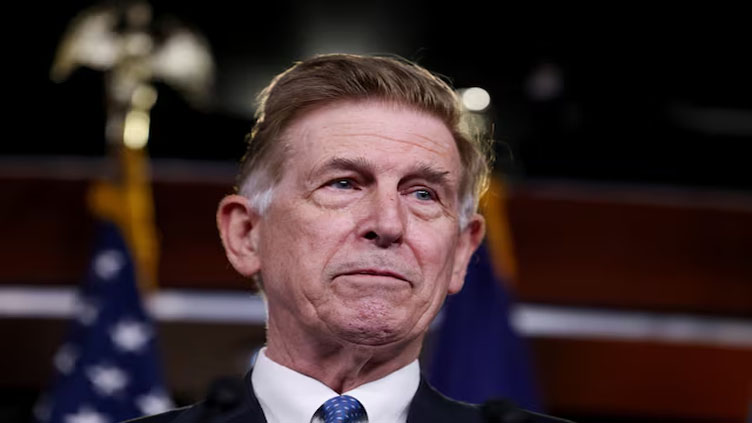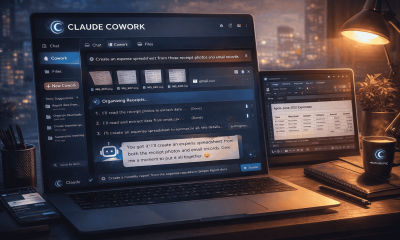
(WS News) – A long-shot congressional challenger in Virginia is so determined to debate the Democratic incumbent one more time that he created an AI chatbot to stand in for the candidate in case he’s a no-show.
Less than a month from election day, the race for Virginia’s 8th congressional district is all but decided. The sitting congressman in this deeply Democratic district, Don Beyer, won handily in 2022 with nearly three-quarters of the vote.
Bentley Hensel, a software engineer for good government group CivicActions, who is running as an independent, said he was frustrated by what he said was Beyer’s refusal to appear for additional debates since September.
So he hatched a unique plan that will test the bounds of both propriety and technology: a debate with Beyer’s artificial intelligence likeness. And the candidate has created the AI chatbot himself – without Beyer’s permission.
Call it the modern-day equivalent of the empty chair on stage. DonBot, as the AI is playfully known, is being trained on Beyer’s official websites, press releases, and data from the Federal Election Commission. The text-based AI is based on an API from OpenAI, the maker of ChatGPT.
The bot is not intended to mislead anyone and is trained to provide accurate answers, said Hensel, who has raised roughly $17,000 in outside contributions and personal loans to his campaign, compared to Beyer’s $1.5 million fund.
“Don Beyer understands the best strategy is to avoid any public appearances, but the voters of this district deserve to hear from him and all the candidates on the issues.”
The debate, slated to stream October 17 online, will pit Hensel and David Kennedy, another independent, against DonBot. Republican Jerry Torres, who has raised about $30,000 for the race, did not respond to several emails or phone calls.
A Beyer spokeswoman said he had appeared at a September forum with the other three candidates and did not plan to participate in the October debate, or if the campaign planned to take any other action.
She said he “continues to be a leading voice in Congress on the need to improve artificial intelligence regulation, including legislation to prevent nefarious actors from utilizing AI to spread election misinformation.”
Should Torres also not participate, Hensel plans to create an AI version of him as well, according to an invitation to all the candidates seen by Reuters.
Hensel and Kennedy acknowledge the use of AI is in part a last-ditch effort to bring some attention to an otherwise predictable campaign. Hensel said he was also motivated by a desire for greater transparency.
The debate will be a test of a still new technology that can instantaneously craft full-fledged text, video and audio responses to simple prompts.
Amid an investing frenzy in AI – OpenAI this month said it raised $6.6 billion – some technologists fret the software could become sentient and lead to world-ending disasters, while others worry convincing deep fakes of celebrities or politicians could damage reputations and help the dissemination of political disinformation.
Already, AI has been used to create a voice resembling President Joe Biden’s to make robocalls in New Hampshire encouraging voters not to cast their ballots in the state’s January primary. Former president Donald Trump posted an AI-generated image of pop star Taylor Swift endorsing his campaign.
Hensel gave Reuters an exclusive preview of DonBot, also known as CandidateGPT, and the software generally gave straightforward answers to questions of policy, often citing Beyer’s website as the source.
Asked by Reuters about gun control, DonBot responded, “we are beyond a crisis point with guns in America” and that “halting gun violence has been a major focus of my work.” To another query, the software said “I firmly support a woman’s right to choose,” part of a five sentence response pointing to legislation Beyer has endorsed.
The software, in limited testing, did not succumb to oddball suggestions or questions with made up facts or statistics, known in AI circles as hallucinations. Noting that it was using inference, rather than Beyer’s own words, DonBot rejected the notion that the U.S. bomb Nebraska, for example: “Bombing any part of our own country is completely unacceptable.”
It refused to endorse Trump for president, saying “I have consistently opposed the previous president’s policies and approach.” It said it has not officially endorsed anyone for president. Beyer has in fact endorsed Democratic candidate Kamala Harris.
At least 26 states are considering or have passed rules that would regulate the use of generative AI in communications around elections, including greater disclosure and the outright banning of deepfakes of politicians. But federal regulators have failed to advance broad legislation on AI in time for this year’s elections.
Three Virginia attorneys and an election watchdog told Reuters that Beyer likely would have little recourse to prevent the debate from taking place, if he tried, provided his likeness is not being used for commercial purposes and it is not used to deceive voters by appearing like him.
“They need to be very clear that it is an AI and that it’s based on the candidate’s own words,” said Danielle Citron, a University of Virginia law professor. She said a Virginia ban on deepfakes applies narrowly to sexual content.
Beyer’s spokeswoman didn’t address whether his campaign would try to prevent the debate from happening beyond saying he had no plans to participate. Virginia’s state election board did not respond to a request for comment.
Beyer is taking classes on artificial intelligence at Virginia’s George Mason University and serves on a bipartisan congressional task force on artificial intelligence.
Kennedy, a senior fellow at the Council on Governmental Relations who has raised about $13,000 in contributions and personal loans, said he had agreed to the AI debate because of the “non-competitiveness” of the race and a hope that it would compel Beyer to appear.
Beyer’s spokeswoman said he attended an online forum with the other candidates on Monday. The online debate is being sponsored by two non-profits, The True Representation Movement and the Black Alumni Alliance National Association.
The True Representation Movement backs congressional candidates who commit to voting on bills based on feedback from a group of 1,000 anonymous voters representing various viewpoints.
“I am not naïve about what’s going to happen in November,” said Hensel, referring to Beyer’s considerable lead in the polls. “But I believe strongly in greater transparency.”





